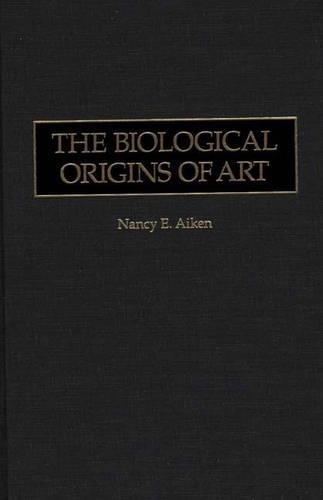
The Biological Origins of Art
(Hardback)
Publishing Details
The Biological Origins of Art
By (Author) Nancy E. Aiken
Bloomsbury Publishing PLC
Praeger Publishers Inc
30th April 1998
United States
Classifications
Tertiary Education
Non Fiction
Cognition and cognitive psychology
701.15
Physical Properties
Hardback
200
Width 156mm, Height 235mm
482g
Description
Beginning with Plato, philosophers have theorized about art, asking What is art and How does art evoke emotion Their answers, evolving from Plato's Idealism, have led to Nihilism. Art cannot be defined is the current answer to the first question, and the second has not been dealt with in any significant way since Langer's Feeling and Form in 1953. How art affects our emotions is considered not from a philosophical viewpoint but from an evolutionary standpoint. How are emotions aroused is a biological question, and, as Aiken clarifies, it has been answered by neuroscientists. Art is usually thought of as pleasurable, but it can be ugly, disgusting, or fearsome. Aiken argues that fear, for example, can be elicited by simple shapes, lines, colors, or sound. Rather than just a source of pleasure, Aiken shows how art becomes a powerful tool of social and political manipulation. Through art, people can be conditioned to fear leaders, nations, gods, and ideas. A provocative work of interest to scholars and researchers as well as all people interested in art and human behavior.
Reviews
"A serious and carefully-argued contribution, at the most fundamental level, to a longstanding problem in aesthetics--how art evokes emotion. While artists and philosophers will no doubt agree with the author that there is more to say, aesthetics begins here. Those with an interest in how art works would do well to begin here also."-Ellen Dissanayake Author, What Is Art For and Homo Aesthetics
Working squarely within the present framework of sociobiology, Aiken makes the argument that, in addition to various cultural factors and other subjective associations (such as symbolism) that trigger emotional responses to art, there is a fundamental biological reflex that is universal in human beings....General readers, undergraduates through faculty.-Choice
"Working squarely within the present framework of sociobiology, Aiken makes the argument that, in addition to various cultural factors and other subjective associations (such as symbolism) that trigger emotional responses to art, there is a fundamental biological reflex that is universal in human beings....General readers, undergraduates through faculty."-Choice
Author Bio
NANCY E. AIKEN is Adjunct Professor in the Department of Philosophy at Ohio University. She is an artist as well as a teacher. She has written numerous articles on art and evolution.
